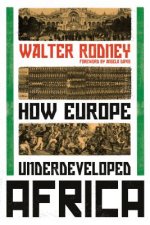
Code: 02537020
Ethnic Boundary Making
by Wimmer, Andreas (Professor of Sociology, Princeton University)
It is hard to avoid seeing ethnicity, race, or nationality wherever one looks. Differences in education, income, and health are often patterned along ethnic or racial lines. But how do we disentangle discrimmation and preferences ... more
- Language:
 English
English - Binding: Paperback
- Number of pages: 304
Publisher: Oxford University Press Inc, 2013
- More about this

You might also like
-

Dragon Chronicles
26.76 € -

Red Scholar's Wake
21.91 € -18 % -

Fix-It and Forget-It Cookbook
20.50 € -4 % -

Brush Back
23.22 € -4 % -

Arf! on the Housetop
39.39 € -22 % -

Economic & Social Issues in the Middle East & North African Countries
223.85 € -17 % -

International Finance Discussion Papers
17.36 € -

Yanks are Starving
23.53 € -1 % -

Proxopera
10.50 € -9 % -

Phloem limited pathogens of grapevine in the Republic of Macedonia
52.11 € -9 % -

Silence and Music
4.64 € -15 % -

Engineering and Analyzing Multicellular Systems
115.86 € -

High-Powered Investing All-in-One For Dummies, 2nd Edition
28.58 € -24 % -

Full Employment Regained?
41.91 € -

Catch 22
13.63 € -7 % -

Philosophie der Offenbarung
24.34 € -9 % -

V zajatí rýchlych kolies
5.85 € -24 % -

Amour Ou Patrie, Souvenirs d'Alsace, 1870-1871
22.52 € -1 % -

Coup d'Oeil Sur Les Difficultes Des Causes Procatartiques Du Cholera-Morbus
13.93 € -1 % -

Französisch Grammatik - Clever gelernt!
8.07 € -

Operations Research
49.49 € -23 %
Give this book as a present today
- Order book and choose Gift Order.
- We will send you book gift voucher at once. You can give it out to anyone.
- Book will be send to donee, nothing more to care about.
More about Ethnic Boundary Making
You get 129 loyalty points
 Book synopsis
Book synopsis
It is hard to avoid seeing ethnicity, race, or nationality wherever one looks. Differences in education, income, and health are often patterned along ethnic or racial lines. But how do we disentangle discrimmation and preferences for certain groups from the everyday working of labor markets and educational institutions or privileging family members or those with similar educational backgrounds? Drawing on a boundary-making perspective first championed by anthropologist Fredrick Barth, Andreas Wimmer introduces a new comparative theory of ethnicity. It explains precisely how and why ethnicity matters in certain societies and contexts but not in others, and why it is sometimes associated with inequality and exclusion, with political and public debate, with closely-held identity, while in other cases ethnicity, race and nationhood do not structure the allocation of resources, invite little political passion, and represent secondary aspects of individual identity. Wimmer argues that when ethnic and racial differences matter they matter because of institutional incentives, differences in power, and pre-existing social networks. Wimmer first provides a broad overview of different ethnic configurations around the world, outlines the new theory, and proposes a set of research designs based on non-ethnic units of observation. Next, he draws on these methods to demonstrate how the utility of the boundary-making approach through a qualitative study of immigrant ethnicity in Switzerland, a network analysis of racial and ethnic boundaries of U.S. college students on Facebook, and a statistical analysis of cultural values in the European Union.
 Book details
Book details
Book category Books in English Society & social sciences Society & culture: general Social groups
51.41 €
- Full title: Ethnic Boundary Making
- Author: Wimmer, Andreas (Professor of Sociology, Princeton University)
- Language:
 English
English - Binding: Paperback
- Number of pages: 304
- EAN: 9780199927395
- ISBN: 0199927391
- ID: 02537020
- Publisher: Oxford University Press Inc
- Weight: 486 g
- Dimensions: 234 × 157 × 20 mm
- Date of publishing: 07. February 2013
Trending among others
-

Women Who Run with the Wolves
9.89 € -13 % -

Orientalism
11 € -23 % -

Manipulated Man
12.52 € -26 % -

When God Was A Woman
19.59 € -3 % -

Gender Trouble
27.16 € -

Tom of Finland. The Complete Kake Comics
21.10 € -

Culture of Critique
23.93 € -16 % -

Beauty Sick
11.30 € -28 % -

Complete Persepolis
23.53 € -16 % -

We Should All Be Feminists
6.96 € -30 % -

Womanhood
23.12 € -18 % -

Stop Blaming, Start Loving!
17.16 € -18 % -

Revolt of the Elites and the Betrayal of Democracy
17.26 € -22 % -

How to Make Anyone Fall in Love With You
12.21 € -15 % -

Tribal Arts of Africa
24.44 € -4 % -

Shaman's Mirror
56.56 € -9 % -

Witches, Witch-hunting, And Women
12.82 € -15 % -

Tracking the Wild Woman Archetype
41.71 € -2 % -

Chosen by the Spirit
20.50 € -4 % -

My Place
12.92 € -18 % -

Chosen Few
24.44 € -1 % -

Untrue
15.24 € -28 % -

Hamas
60.70 € -

Women Who Run With The Wolves
15.45 € -19 % -

The Way of Men
13.22 € -22 % -

Inuit Stories of Being and Rebirth
27.06 € -24 % -

Who Cooked the Last Supper?
19.79 € -6 % -

Qur'an
30.19 € -28 % -

The Mastery of Love
12.31 € -19 % -

The Velvet Rage
16.25 € -23 % -

Between The World And Me
12.21 € -22 % -

Freedom Writers Diary
15.34 € -11 % -

How Europe Underdeveloped Africa
22.92 € -

Second Sex
15.24 € -28 % -

Empire of the Summer Moon
14.33 € -22 % -

Lean In
12.82 € -23 % -

Witches, Midwives, And Nurses
11.91 € -2 % -

Indigenous Peoples' History of the United States
15.34 € -20 % -

Atlas of Indian Nations
33.83 € -25 % -

Women, Race, & Class
12.92 € -29 % -

Joy of Gay Sex
20.40 € -18 % -

Way of All Women
30.09 € -15 % -

The Male Nude
18.27 € -9 % -

Goddesses in Everywoman
12.21 € -22 % -

Nice Girls Don't Get The Corner Office
9.79 € -24 % -

The Autobiography of Malcolm X
10.50 € -7 % -

The Bell Curve
17.36 € -27 % -

Why Does He Do That?
16.46 € -14 % -

Zami
10.09 € -24 %
Collection points Bratislava a 2642 dalších
Copyright ©2008-24 najlacnejsie-knihy.sk All rights reservedPrivacyCookies



 15549 collection points
15549 collection points Delivery 2.99 €
Delivery 2.99 € 02/210 210 99 (8-15.30h)
02/210 210 99 (8-15.30h)